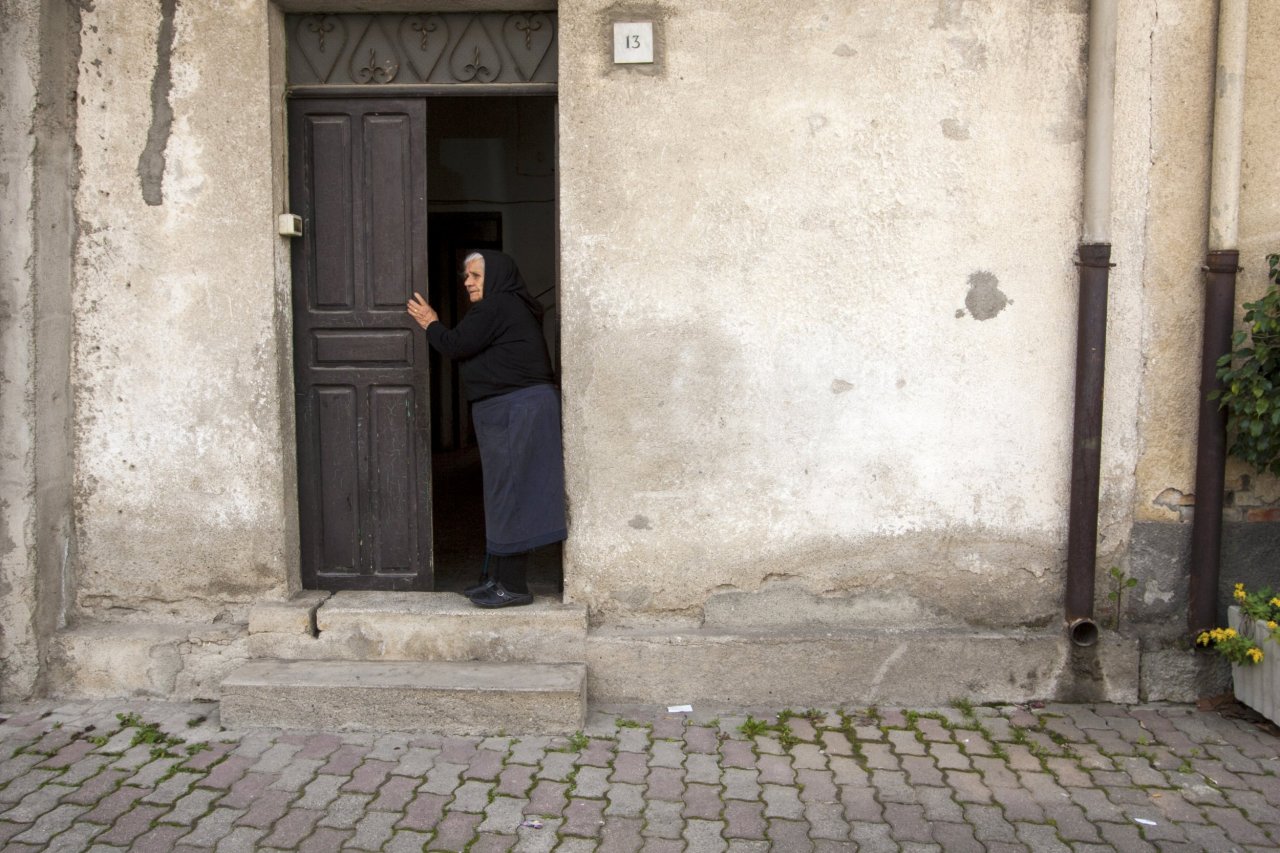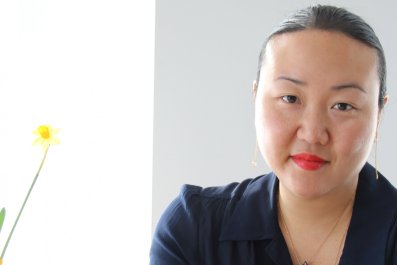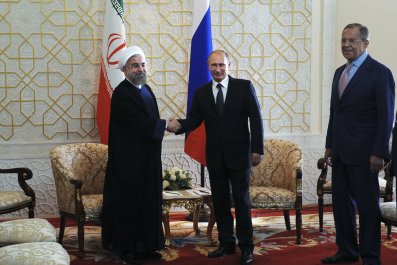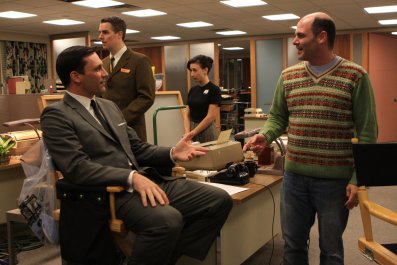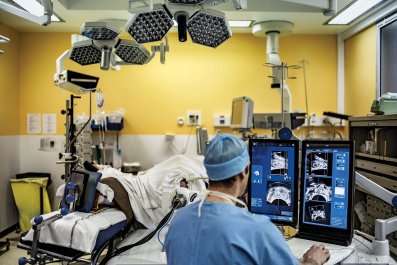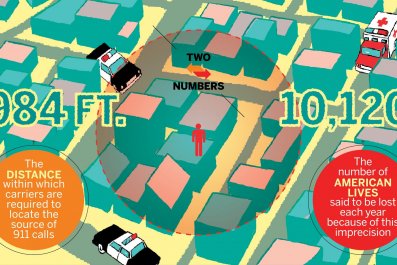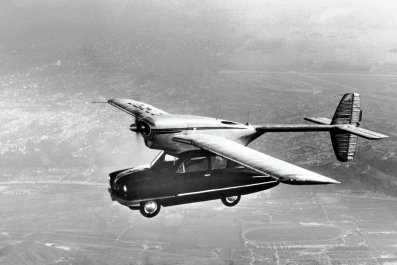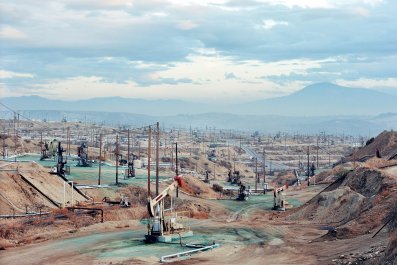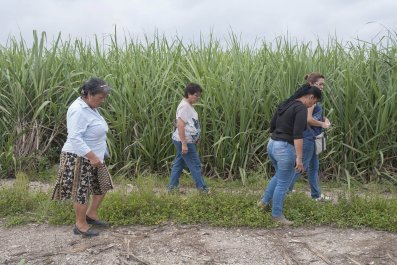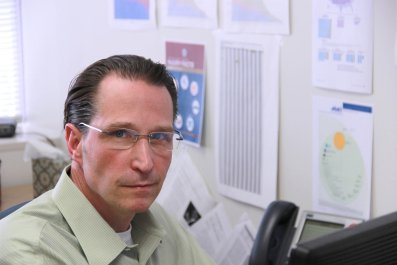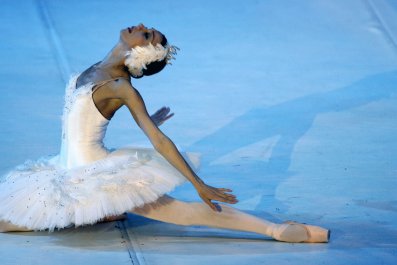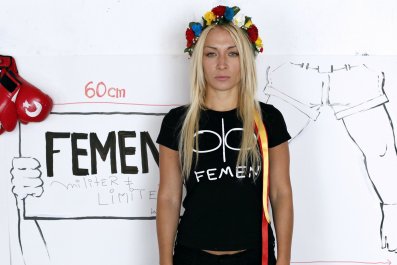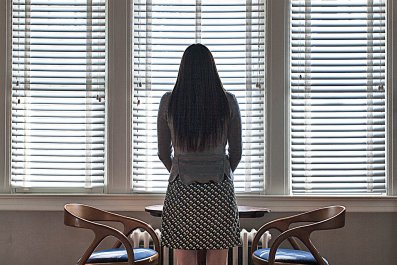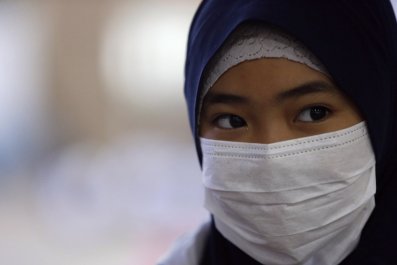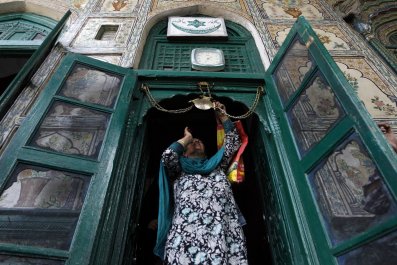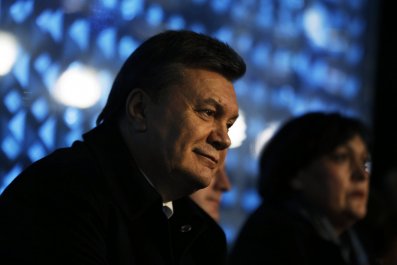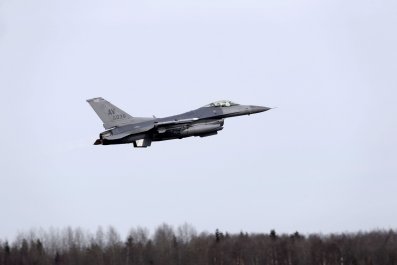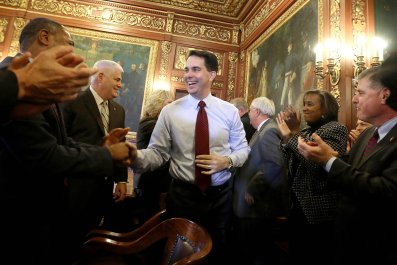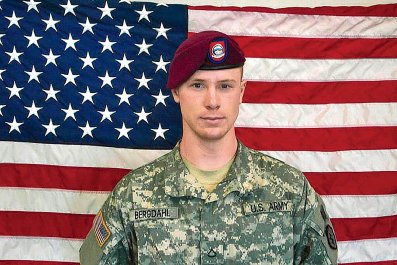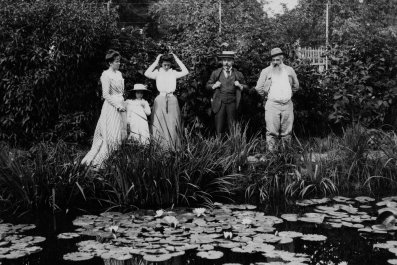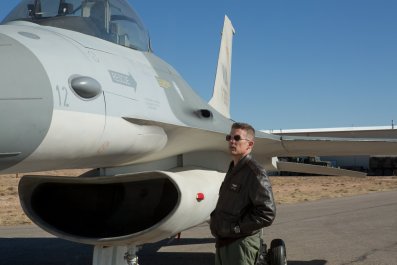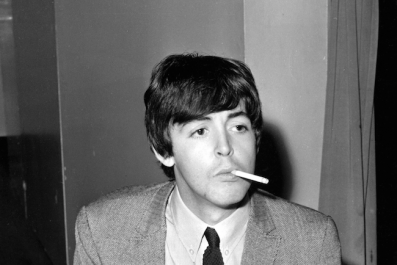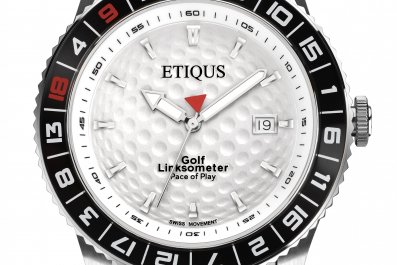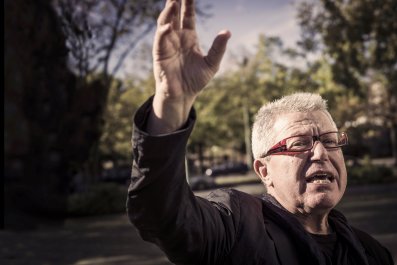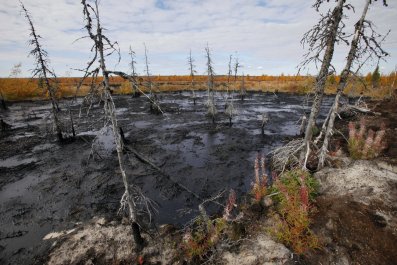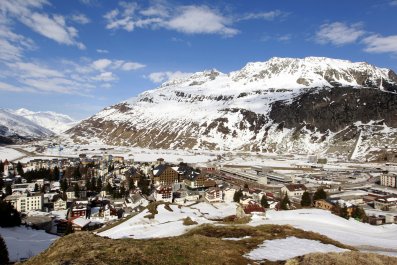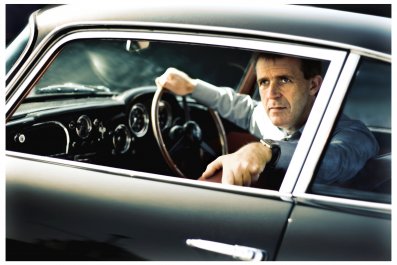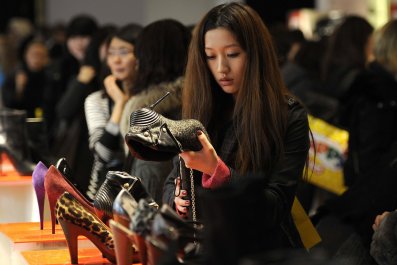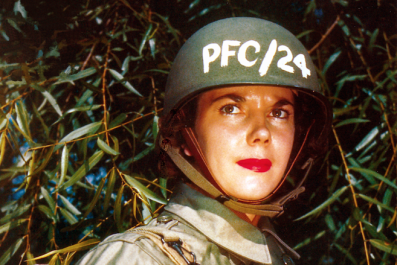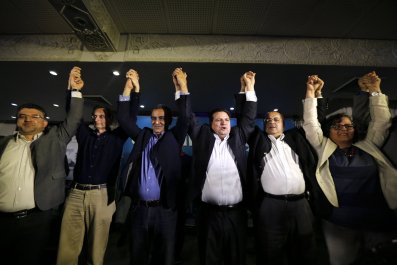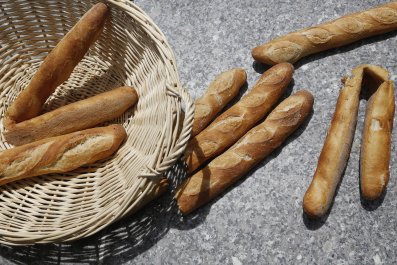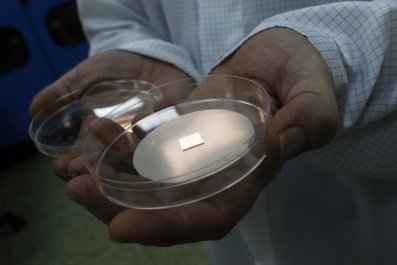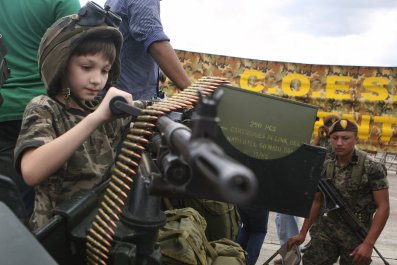To the untrained eye, the tiny town of Africo on the toe of Italy might pass for paradise on Earth. In June, giant turtles emerge at night from the wine-dark sea to lay their eggs in the sand just a few miles up the beautiful coast and, every once in a while, a priceless bronze sculpture from when southern Italy was part of Greece until 300 years before the birth of Christ, is found by divers or fishermen, half-buried on the seabed.
Yet Africo (population 3,200) is possibly the poorest town in Italy. Its unemployment rate is 40% and the gross average wage of the few who have a job is €14,000 a year. Virtually no one under the age of 30 works in Africo and one-third of the inhabitants are older than 55. Only 10 people, according to official tax returns, earn more than €40,000 a year gross. You notice the poverty in the detail of everyday life: few shops or bars, for example, have change for anything larger than a €10 note, or if they do, only a heap of coins.
There are hardly any shops, not even food shops, let alone businesses or factories, although the town does notably boast a full disputation of lawyers. There is virtually no tourism either despite the unspoiled beauty of the coastline and of the blue-green Ionian Sea, and a railway line that passes through the town. There is not even a single hotel – just one bed and breakfast down on the beach, which is open only in summer – and one restaurant – a pizzeria called Il Gabbiano (The Seagull). The tiny railway station is closed and there is no such thing as a taxi in Africo, or anywhere else outside Reggio Calabria, the regional capital which is 50 miles away.
The only proper jobs to be had are government jobs, paid for by taxpayers.
In the case of Africo, this means with La Forestale (the Forestry Commission), which manages the mountains immediately behind the town, where there are wolves, many unique and beautiful insects, and a type of lemon – il bergamotto, which drastically reduces high cholesterol and is, therefore, potentially worth a fortune. In Africo, the deal is simple: it is either join La Forestale or emigrate – as many do – or else you join the Mafia, the state within the state – as others do.
Meanwhile, the number of old people to young in Africo grows exponentially – as it does in Italy as a whole, a country which for decades has had the lowest birth rate
in the world. Latest figures published this February for Italy show that, while the average age of death of Italian women is now 85 and Italian men 80, the number of births has never been lower than it is now: 1.39 children per woman. "We are a dying country," Italy's health minister Beatrice Lorenzin concedes. "This situation has enormous implications for every sector: the economy, society, health, pensions, just to give a few examples."
Guns and wallets
Perhaps the Bar Crown, opposite the church in Africo, was the right place to talk about Italy, poverty and the Mafia but then again perhaps not. La Corona is the name of the hierarchy that controls the Calabrian Mafia, the 'Ndrangheta, in the same way that La Cupola controls the Sicilian Mafia, Cosa Nostra.
In recent years, the 'Ndrangheta has become the most powerful Italian Mafia organisation at the expense of Cosa Nostra. This is due not only to the concerted campaign by the Italian government, launched in the 1980s to eradicate Cosa Nostra, but also to the 'Ndrangheta's low profile: it does not murder politicians and judges as Cosa Nostra used to do, but infiltrates politics and the judiciary by getting its people inside the important institutions. Its principal activity is the cocaine trade, which gives it a mega-billion euro annual turnover. Africo is one of its strongholds.
So the name of the bar, even though it is in English, cannot possibly be a coincidence. There is even an image of a crown embossed in gold on its façade.
The symbolism is crystal clear.
The Bar Crown is full of teenage boys, who gather around my table outside on the pavement demanding to know who I am and what I want. They are far less scary though than a pub full of drunken British teenagers, but in southern Italy it is not a spontaneous glass in the face you must watch out for, but a measured pistol shot – a day, a week, or years later.
The boys all have expensive iPhones and James Dean haircuts. None of them buys anything in the bar. Italians do not drink much anyway but also they have little money. So how much cash, I ask, do they have in their pockets? None, they say, though one of the youngest, who could not be more than 14, then produces a roll of bank notes from his pocket (maybe €100 in all). How come? "His father's an imprenditore (businessman)," the others explain. They will not elaborate on what this means but as if to make a point one of them bursts into song in the style of a rapper: "Si spaccia, si spaccia, ad Africo, si spaccia." The word spacciare means "to deal drugs".
So do they have guns with them right now? The question prompts an explosion of laughter. What do they want to do for a living when they left school? "Doctor," says Leo Versaci, aged 17, decisively, as he inhales his cigarette. But does he have what it takes? "He's the brightest boy in his class and he has the right connections," say his friends.
Despite the dire poverty and the desperate lack of opportunity in Africo there are no beggars or street crime.
I could leave my wallet on the table outside Bar Crown, I am sure, and find it untouched a week later. For as Antonio Spataro, 17, explains: "Now look here, Africo is not Africa, you know."
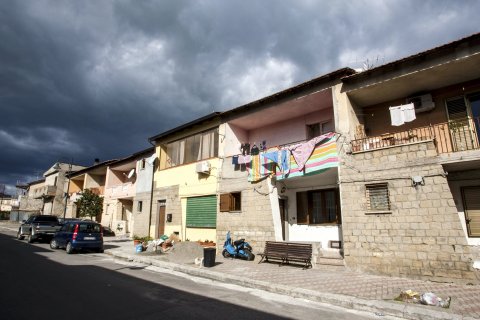
Italy's public debt is 135% of its GDP – the third highest in the world after Japan and Greece – and has increased by more than 20% since 2003. The annual interest payments are roughly €80bn (more than the budgets of the Ministries of Defence, Education and the Interior combined). Italy's economy has been in more or less permanent recession since the 2007-08 crash and is now in deflation.
Since 2007, its industrial production has fallen by a quarter and, in the past five years, its economy has shrunk by nearly 10%. Its official unemployment rate is 13.4%, though the real rate is more like 20% because the Italian government pays failing companies to keep on workers to do nothing. Just 58% of Italians of working age actually work (compared with 65% in other developed countries). Italy's youth unemployment rate is a staggering 43% and its "total tax rate" on Italian businesses the highest in the world at 68.6% – according to the financial daily Sole 24 Ore – compared with 36% in Britain. Italy's VAT rate is a scandalous 22%.
Things are bad in the North but far worse in the South, especially in Calabria and places like Africo where the Mafia is the State. Last August, the town council was dissolved by the Italian government under emergency powers because of alleged "infiltrazioni di stampo mafioso" (Mafia infiltration) especially in the field of public works contracts. This had happened before, in 2003, until normal democracy was allowed to resume four years later. But nothing, it seems, has changed. So now, once again, in place of the elected mayor and town council, a commission of three civil servants from Rome runs the town.
Siren's call
Government policy, it seems, is not to speak about Africo. They will not speak to me nor will the Carabinieri nor even the priest, Don Giuseppe Giacobbo, who explains: "I'm not qualified." But a group of middle-aged men soon materialise around my table outside the Bar Crown and ask me the same questions as the teenagers, though in a much more menacing way. As I reply, they check all my answers out on their iPhones.
Who is to blame for the poverty in Africo, I ask them as loudly as I dare: the government or the people? One of them, Francesco, an old man who will not reveal his surname, shouts: "It's the State's fault, not ours. We live in misery, we're ruined. We've got the sea, the mountains, the sun, but we do not have the State. We can't create on our own. There are no roads, no railways, no factories. There's nothing. We can do nothing on our own."
Should not the Mafia also share the blame? "What is this fucking Mafia they keep talking about? It is not here! The Mafia does not exist in Africo. They've criminalised us in order to find a scapegoat for their own failures. It's a scandal," says Francesco.
This is the constant refrain from young and old alike: the Mafia does not exist in Africo. The barman, Bartolo Morabito, 31, who has a degree in environmental studies and is married with no children, has never had a full-time job and works in the Bar Crown on and off to help his cousin. In Italy there is no unemployment benefit except for a limited period and only for people with full-time contracts who are sacked. Morabito, as it happens, is the surname of the most famous Mafia clan in Africo.
He says: "I wanted to start up a gardening business but the Inland Revenue and the council make it impossible because they massacre you with taxes and bureaucracy and anyway the banks won't give you a loan."
How does he – how does anyone – manage to survive in Africo then? "We help each other. I go to my father's land and give my neighbour some tomatoes or vegetables, or some ricotta cheese from the goats, or some eggs from the chickens, and he gives me in return some wine and olive oil from his family's land. If we lived in a big city where no one helps anyone else we'd all be dead by now."
Despite the poverty, according to the official figures the 3,200 inhabitants of Africo nevertheless own 1,783 cars. Something does not figure. In 2014 a film on Africo, Anime Nere, about three brothers who get sucked first into the drugs trade and then the Mafia, with tragic consequences, made a big impression at the Venice Film Festival. It was based on a book by Gioacchino Criaco who is from Africo: his father Domenico was killed in a Mafia shoot-out in 1993 and his brother Pietro, who was one of the 30 most wanted Mafiosi in Italy until his arrest in 2008.
"The young do not work, full stop. Yes, their families feed them but there is no way they can develop a normal life and so the siren call of the 'Ndrangheta is difficult to refuse," he says.
Many of the actors in the film were citizens of Africo who had never acted before, including Stefano Priolo, 50, who is also in the Bar Crown with the middle-aged men. Puffing quite openly on a joint, he admits: "Yes, of course the Mafia exists but the real Mafia is white-collar, know what I mean? And it comes from above. It's also our fault because we don't know how to rebel against this system." Why not? "The problem is that deep down here in Calabria we are Arabs and not Greeks," he replies.
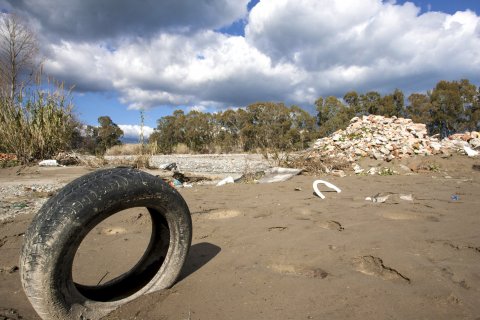
Massacre by Euro
It is Friday night but the nearby pizzeria, Il Gabbiano – the only restaurant in Africo – is empty. Run by two brothers Pasquale Romeo, 29, and Francesco, 31, and opened less than a year ago, it sells on average – they say – eight pizzas on this its busiest night in the restaurant plus 10 takeaway orders – at roughly €5 a time. That's €90. Luckily, the brothers pay no rent as the pizzeria is on the ground floor of their parents' home.
Pasquale is a trained baker and cake-maker. He gave up after eight years because, despite taking the bus each day to Reggio Calabria (a one-hour journey each way), the bakery where he worked paid him just €700 a month net "in nero", under the counter, and so did not pay any tax or pension contributions on his behalf.
"In the last five years the crisis has been total but the real problem is the euro," he says. "When the euro came in, prices doubled overnight but pay stayed the same. The first thing Italy must do is leave the euro. It has massacred us. The young are able to carry on only with help from their parents."
Each month he and his brother must find a minimum of €2,250 to make ends meet: €1,000 to pay the government their tax and pension contributions; €250 for the wood to fire the pizza oven; and €1,000 for flour and ingredients. A bank loan might help but, as he explained: "I don't deal with banks. They are thieves." He got married three years ago and his wife does not work. They have no plans to have children.
"I laugh in order not to cry," he says.
Given Italy's interminable economic crisis, especially in the South, you might expect the mood to be much more violent, even revolutionary. But, says Francesco Romeo, "revolution is not something that you just do when you wake up in the morning. With who? How? Alone, let's face it, you'd just end up in trouble."
Sacked by Rome
Domenico Versaci, 57, the ousted mayor of Africo, who was first elected in 2007 and again in 2012 until the Italian government sacked him last summer because of alleged Mafia infiltration of the town council he ran. He personally is not under investigation, he insists, and professes astonishment.
The ex-mayor – a cousin of the teenage Versaci back at the Bar Crown – will meet me only in an isolated bar in the nearby town of Bianco. He, like everyone else in Africo, avoids the use of the terms "Mafia" or "'Ndrangheta". He talks only of "pregiudicati" – those with a criminal record. The explanation is simple: he wants to deny at all costs, for whatever reason, that a Mafia organisation called the 'Ndrangheta does in fact exist.
"In the list of accusations they say that 10 out of the 19 full-time council employees are pregiudicati," Versaci says. But they had worked at the council for 30 years and arrived way before my time!"
"They also said that I was related to pregiudicati," he adds. "Who?" I ask. "My wife's brother and father." "And what had they done?" Eventually he comes clean – sort of. "Drugs," he says.
In fact, his father-in-law, Pasquale Mollica, is in prison. In 1993, he was arrested in Argentina and jailed in Italy for his part in a major 'Ndrangheta international drug-trafficking operation and the Corriere della Sera described him at the time as a "capobanda" (Mafia boss). Then in 2006, aged 58, he was one of 24 Calabrian Mafiosi tried in Reggio Calabria for international drug-trafficking and jailed again, this time for 20 years. As for his brother-in-law, the ex-mayor refuses even to tell me his first name, which probably means that he is in even deeper trouble than the father-in-law.
"Well, so what! What have they got to do with me?" asks Versaci, who is a lawyer and also runs the Africo football team, which is top of its provincial amateur league. Its colours are blood red. He has appealed against his dismissal as mayor and is confident that he will win.
In the last two decades of the 20th century, the Italian government decided finally to tackle the Cosa Nostra head on and now it has decided to do the same with the 'Ndrangheta. In the past five years, it has arrested hundreds of Calabrian Mafiosi – many from Africo – both in Calabria and elsewhere in Italy, many of whom have been jailed. In the most recent major operation against the 'Ndrangheta, in January 2015, 117 people in northern Italy were arrested around the town of Reggio Emilia – fortress of the post-communist Italian Left – accused of being involved in systematic Mafia infiltration of state-owned and para-state businesses.
Surely Versaci – a Calabrese and a lawyer to boot – has to concede that the Mafia does exist even if it had not infiltrated the Africo town council. "Where is this Mafia? I do not see it," he retorts. Later I put this to Rocco Muscari, a journalist who covers the Mafia for the regional newspaper La Gazzetta del Sud. He smiles. "They cannot admit the 'Ndrangheta exists because it is a top secret society that operates a code of silence, known as omertà," he says. "They don't even see it as a Mafia organisation anyway, just a community that, unlike the State, looks after them."
What then is the solution to the poverty in Italy's South? "To eradicate it we must first eradicate the 'Ndrangheta. But the State has always been absent and so the people have chosen the Mafia." I ask if he can fix me a meeting with a member of the 'Ndrangheta. "You have already met more than one, my friend, and they already know all about you," he replied, "And yet you – you know nothing about them."



